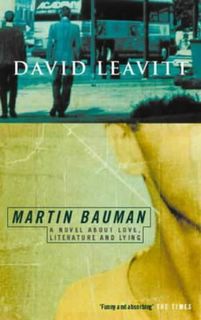Love, Literature and Lying

I am not particularly happy about classifying literature as either "gay" or "straight". In my world, a work of art is work of art devoid of any sexuality. It is in this vein that I become really paranoid when I am presented a work of "gay literature" (or "queer lit" as it is fashionably known) by a friend to read. I generally avoid the gay listings on Amazon for this reason. The classification of literature into gay or straight follows no known logic. For example, Allan Hollinghurst, a gay English writer (and winner of this year's Mann Booker Prize) writes extensively on gay life and yet his work is never classified as Gay Lit. Perhaps, the classification is intended to apply to only those writers who never really manage to move beyond an exclusively gay readership. The most amusing effect of the sexual classification of literature came home to me at the swish Kinokuniya bookshop in prudish Singapore. A huge section coyly labeled Alternative Literature was actually home to gay and lesbian literature by the ton.
It was with these thoughts in mind that I tackled David Leavitt's novel, Martin Bauman. Leavitt's previous work includes The Lost Language of Cranes a soppy coming out- drama which the BBC (in a fit of sexual equality?) deemed fit to serialize. I later read England Needs Me Leavitt's highly stylized account of gay life in the England set during the Second World War. Martin Bauman is a cut above the earlier works. It tells the coming of age story of an aspiring writer in New York in the hedonistic 80s. Although Leavitt's protagonist is gay, I get the feeling that Leavitt wants us to read this as a serious novel and not merely as a "gay" one. The narrative unfolds biographically with Baumann living under the (wretched) influence of his teacher Seymour Flint. There follows a mildly entertaining account of demi monde life in Manhattan with a Dickensian cast of minor characters keeping the action afloat. Given the brilliant work that has been done on tearing the Manhattan establishment to shreds (Truman Capote, Tom Wolfe to name just two) Leavitt is treading on thin ice.
What I did find interesting about Martin Baumann was the treatment and exploration of sexuality despite Leavitt's apparent desire that this be treated primarily as a novel about literature and literary brilliance. Heck. Why lie. It was the gay bits that drew me to the novel including the details of his relationship with his lover Eli. And this is where Leavitt (and others of the Queer Lit ilk) succeed. Although I sincerely hope that I am proven wrong, I have yet to come across a heterosexual writer who can paint an accurate (and intimate) picture of gay life, love and relationships. The odd gay or lesbian character may crop up in such literature but he or she is not the focal point of the book. Usually (and unfortunately) the gay characters who do leap off the page are stereotypes guaranteed not to interfere with the predominantly heterosexual world in which the action is set.
So, what is the verdict? One, Leavitt has improved his writing by leaps and bounds. Unfortunately, his brilliance (for me) comes from the gay world he describes. Second, the gay characterization is nothing short of brilliant. The gay men and women who people his highly sophisticated world do face problems which are unique to homosexuality. It is at this point that I hear a collective sigh with a chorus that states : Well, people are people, gay or straight and the problems they encounter in relationships are basically the same. Yes and No. Yes, because the similiarities outweigh the differences. No, because, (for example) most heterosexual people do not live in a world of secrecy from the majority of their friends, parents and associates at work. Most heterosexual people do have well defined roles- sexual, personal and social-set out for them. That they may choose to flaunt these is a question of choice. Differences such as these (and many others) distinguish homosexual life from heterosexual life. And these must necessarily steep over into fiction - queer or heterosexual.

2 Comments:
thank you thank you thank you
[someone read this post] :)
the difference (secrecy) between gay and straight people pointed out by you is terribly sad and disturbing.
the only people i have to hide my relationships from are my parents and while that is hard enough and quite a pain, given that i am in my late twenties and feel like a 5 year old for lying about where i have been or who i have been with, the idea of leading that life, and having to lie to almost everyone around me is horrible.
that ones sexuality should make a liar out of you, for self preservation, is nothing short of depressing.
Post a Comment
<< Home